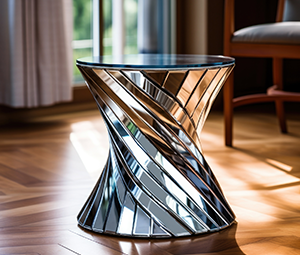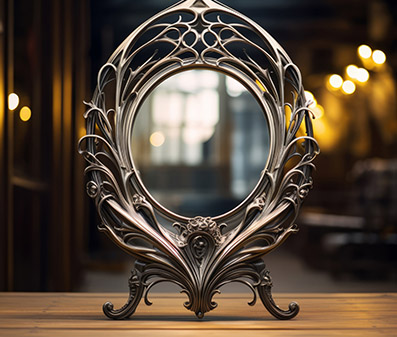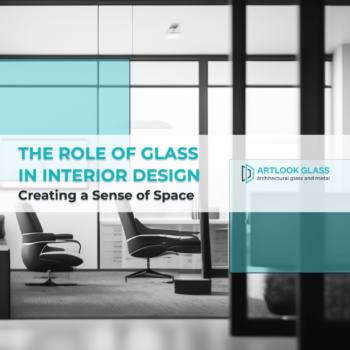Glass furniture for the office has become a popular choice in contemporary workspaces due to its stylish design and functionality. It imparts a modern and sleek aesthetic to the office environment, making it an appealing choice for businesses looking to create a sophisticated and inviting workspace.
Aesthetic Appeal: One of the primary reasons for the popularity of glass furniture in offices is its aesthetic appeal. Glass exudes a sense of elegance and transparency that can elevate the overall look of any office space. It complements various design styles, from minimalistic to industrial, and can be customized to match the office’s branding and decor.
Openness and Transparency: Glass furniture contributes to a sense of openness and transparency within the office. It allows natural light to flow freely, creating a brighter and more inviting atmosphere. This can boost employee morale and productivity while reducing the need for excessive artificial lighting.
Durability and Safety: Modern glass furniture is designed with durability and safety in mind. Tempered glass, which is heat-treated to be stronger than regular glass, is commonly used in office furniture. It is resistant to scratches and can withstand significant weight. Additionally, in the event of breakage, tempered glass shatters into small, relatively harmless pieces, reducing the risk of injury.
Customization: Glass furniture can be tailored to meet specific office requirements. Whether it’s glass desks, tables, shelves, or partitions, they can be customized in terms of size, shape, and color to fit the office’s unique needs. This flexibility allows for the creation of a cohesive and functional workspace.
Easy Maintenance: Glass surfaces are easy to clean and maintain. Regular cleaning with glass-specific cleaning products keeps them looking pristine. This low maintenance requirement is a practical advantage in busy office environments.
Versatility: Glass furniture is versatile and can be used in various office settings, from executive offices to conference rooms, reception areas, and collaborative spaces. Its adaptability makes it suitable for both large corporations and smaller startups.
Environmental Considerations: As sustainability becomes a growing concern, glass furniture manufacturers are increasingly using eco-friendly materials and production processes. Recycled glass and sustainable sourcing options are now available, aligning with modern office trends towards environmentally responsible practices.
Ergonomics: Ergonomic considerations are crucial in office furniture design. Glass furniture can be combined with other materials, such as ergonomic chairs and adjustable desks, to create a comfortable and health-conscious workspace for employees.
Technology Integration: With the advancement of technology, modern glass furniture can be equipped with integrated charging stations, data ports, and cable management systems. This allows for a clutter-free and technologically advanced office environment.
Budget Considerations: While glass furniture is often associated with luxury, it can also be budget-friendly. There are options available to suit various budget constraints, making it accessible to a wide range of businesses.
In conclusion, glass furniture has evolved to meet the modern requirements of office spaces. Its combination of aesthetics, functionality, and adaptability makes it a compelling choice for businesses looking to create contemporary and inviting work environments. When selected and used wisely, glass furniture can contribute to improved employee satisfaction, productivity, and overall well-being in the workplace.
Post Views: 576















